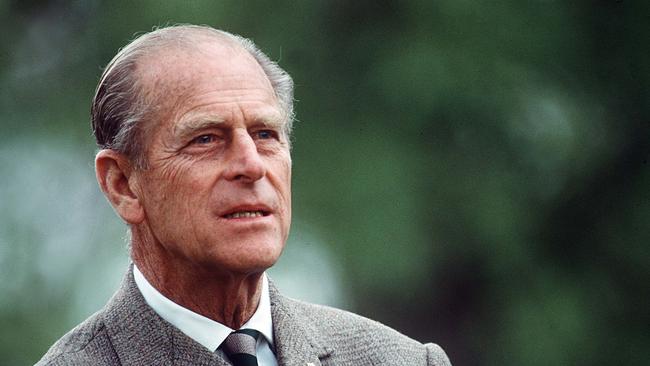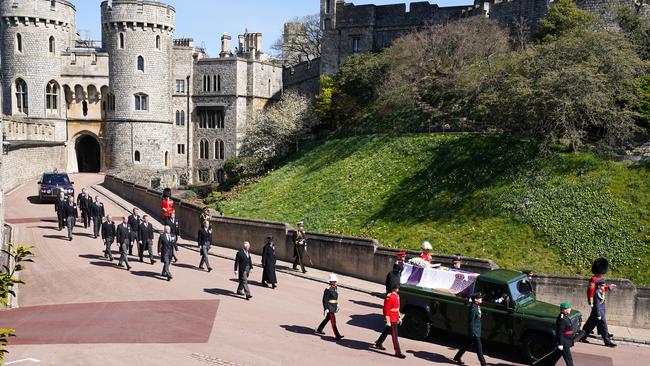Prince Philip’s life and the true nature of duty
Was he really a man of disciplined self-sacrifice, or merely making the best of a life not his own?

Tall and handsome, in the 1950s and 1960s Prince Philip didn’t look to us like a man dedicated to duty as much as one having a very good time in a romantic castle with a beautiful wife and some nice kids.
But it was his life of duty that has dominated the media coverage since his death, a narrative that positions him as a man who put Queen and country ahead of any personal desires. It could well be true. After all, Philip was not a bolter like his uncle by marriage, the feckless Duke of Windsor, or even like his grandson Harry.
(Interesting that Harry, like Philip, put his wife first, but the younger man is getting very little praise for his uxoriousness).
Philip stuck it out and, at least as a younger man, fulfilled a big public role for the Crown. But the truth is we simply can’t tell from this distance whether Philip was so locked into a regime that gave him little option — after all, divorce was never possible — or whether his was a life of duty freely offered.
Indeed, over the years we’ve talked much more about the Queen doing the right thing. Now there’s a woman whose demeanour, at least in the past 20 or 30 years or so, has screamed duty. Not a lot of joy evident in her life as she steered the royal family around the storms created by Diana and Charles and Andrew and Fergie, Charles and Camilla, Harry and Meghan, and of course Andrew as solo operator. She made no secret that it was tough stuff and few would question the Queen’s capacity for duty.

Yet, it is her husband’s death which has pushed the concept to centre stage. And that’s not a bad place for it to be. As University of NSW cultural philosopher and writer Dr Mary Zournazi told Geraldine Doogue recently in a spirited Radio National discussion on the duke and duty, there’s no harm in going back to some of the precepts around duty, those ideas around respect and dignity, to see whether they can be applied in a more secular age.
But leave that to one side, and the question is whether a dutiful Duke of Edinburgh is any sort of role model for our society. Indeed, does the word itself resonate at all in a world dominated by individual choice and personal rights?
Duty comes with the baggage of religion and a sense of sacrifice. It feels reductive, imposed. Duty lacks glory or glamour. It’s a dull word, and sounds like doors closing on fun and personal agency.
So offering up duty as the driving force in Prince Philip’s life might not cut it with the generations it is perhaps meant to inspire.
It’s a different matter for those closer in age to the duke. His generation took duty for granted. There were not too many choices for those born between the wars, leaving childhood to enter a world of unemployment and economic depression, a world where 14-year-old boys and girls were sent off, often alone, to find the jobs that would support widowed or deserted mothers and younger siblings, or simply to keep their own heads above water.
Duty was broader than family too. One was expected to fight for one’s country, to pay taxes, to cut one’s own firebreaks and probably once again care for that (now elderly) parent by building the granny flat or enclosing the back veranda. Knuckling down, and offering up, was just what one did.
Not that it necessarily made for a happy life: think of the resentment felt by men and women stuck in marriages because of a belief that this was God’s will, or knowing that avoiding one’s duty could lead to almost unbearable social censure.
Those religious and moral sanctions have faded dramatically in the past 40 or 50 years. Today, many find it hard to follow other people’s edicts — whether in our families, at work, at school. We are surely not surprised. It’s difficult to teach duty, which inevitably involves surrendering some of your autonomy, or agency, to the kids we have insisted have rights at school, at home and in the broader community.
That’s a good thing too. Our children need the confidence to reject offensive adult overtures, or predatory teachers. They need to question unfair responses from powerful adults. But the development of individual rights tends to overwhelm more collective virtues, like duty. The narrative that works in the West in the 21st century is the one about personal power, about our right to decide rather than following a code or template based on old ideas of God, or Crown, or country.
There was plenty in the duke’s life that could inspire younger generations — his evident curiosity, his hunger for information and ideas, his innovative, technical streak, and what looks to have been an optimistic disposition.
It’s stretching it, given that nannies and courtiers seemed to have done most of the child-rearing, but it’s even possible to see the duke as a role model for the modern husband and father, walking behind his working wife but ahead of the times, the second fiddle at the castle.
And let’s not forget the power of the single, simple image in today’s Instagram world. The duke’s choice of a stripped-down funeral and a converted Land Rover to carry his coffin told us as much about this plain-spoken yet playful great-grandfather as all those words about his life of duty.
That sense of delight and energy might be worth teaching our kids, along with a dose of the self-discipline and adaptability Philip seems certainly to have possessed.
Duty? Maybe.




To join the conversation, please log in. Don't have an account? Register
Join the conversation, you are commenting as Logout